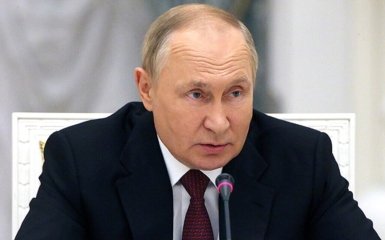The Kremlin can use "signals" to the West about its alleged readiness to put the war against Ukraine "on pause" to try to reduce the defence assistance of partner countries. Russian dictator Vladimir Putin has already carried out similar manipulations, particularly regarding negotiations.
What "signals" are we talking about?
Citing former and current senior Russian, American and international officials, the New York Times (NYT) previously published a story about Putin's use of back channels and intermediaries to demonstrate his apparent interest in a ceasefire in the war against Ukraine despite his recent public statements to the contrary.
As the NYT reported, Western officials have been "picking up new signals" through back channels since September that Putin is interested in a ceasefire that would freeze the current front lines in Ukraine. At the same time, the publication noted that Western officials warned about the possibility of these channels being "misdirected by the Kremlin", which may not reflect a "real desire" to negotiate.
Probable motives of the dictator
The NYT suggested several possible motives for Putin's apparent interest in the ceasefire:
The upcoming presidential elections in Russia in March 2024,
the desire to "leave your options open" regarding the resolution of the war and take advantage of the expected decrease in the support of Ukraine by the West,
as well as the "distraction" of the Israel-Hamas war.
Rhetoric and manipulation
All of these motives reflect temporary reasons why Putin may seek a temporary "truce" in the war with Ukraine, which would benefit Russia by giving it time to prepare for renewed aggression, which coincides with ISW's assessment.
As the NYT notes, the public rhetoric of Putin, who recently reaffirmed Russia's maximalist goals, tantamount to the complete surrender of Ukraine and the West, contradicts reports that he wants to "declare victory and move on."
The report also said that neither the NYT nor the publication's sources provided any reason to believe that Putin's back-channel communications would be more reflective of his goals than his public appearances.
What they say in the Kremlin
Kremlin spokesman Dmitriy Peskov told the NYT, "Russia remains ready (for negotiations), but only to achieve its own goals." This is how he answered the question about Russia's readiness to negotiate a ceasefire in Ukraine on the current front lines.
Analysts note that Putin has recently reiterated that his maximalist goals in Ukraine — "denazification," "demilitarization", and the imposition of "neutral status" — remain unchanged. In addition, the dictator and senior Kremlin officials have increasingly expressed expansionist rhetoric that suggests that Putin's goals are coming true. This does not exclude further Russian attempts to seize other territories of Ukraine.
What is the meaning of Putin's "signals"
The timing of Putin's announcement of interest in a ceasefire is more consistent with Russia's ongoing efforts to delay and prevent further Western military aid to Ukraine than with a serious interest in ending the war short of total Russian victory, ISW experts said.
The Institute for the Study of War observed similar attempts by the Kremlin to mislead Western politicians to put pressure on Ukraine to start negotiations with Russia in the winter of 2022-2023 and to reorient the West's attention to hypothetical negotiations and not to Ukraine having sufficient means before the spring-summer counteroffensive.
The Kremlin is likely using back channels to achieve a similar effect amid the Western debate over further military aid to Ukraine, analysts say.



